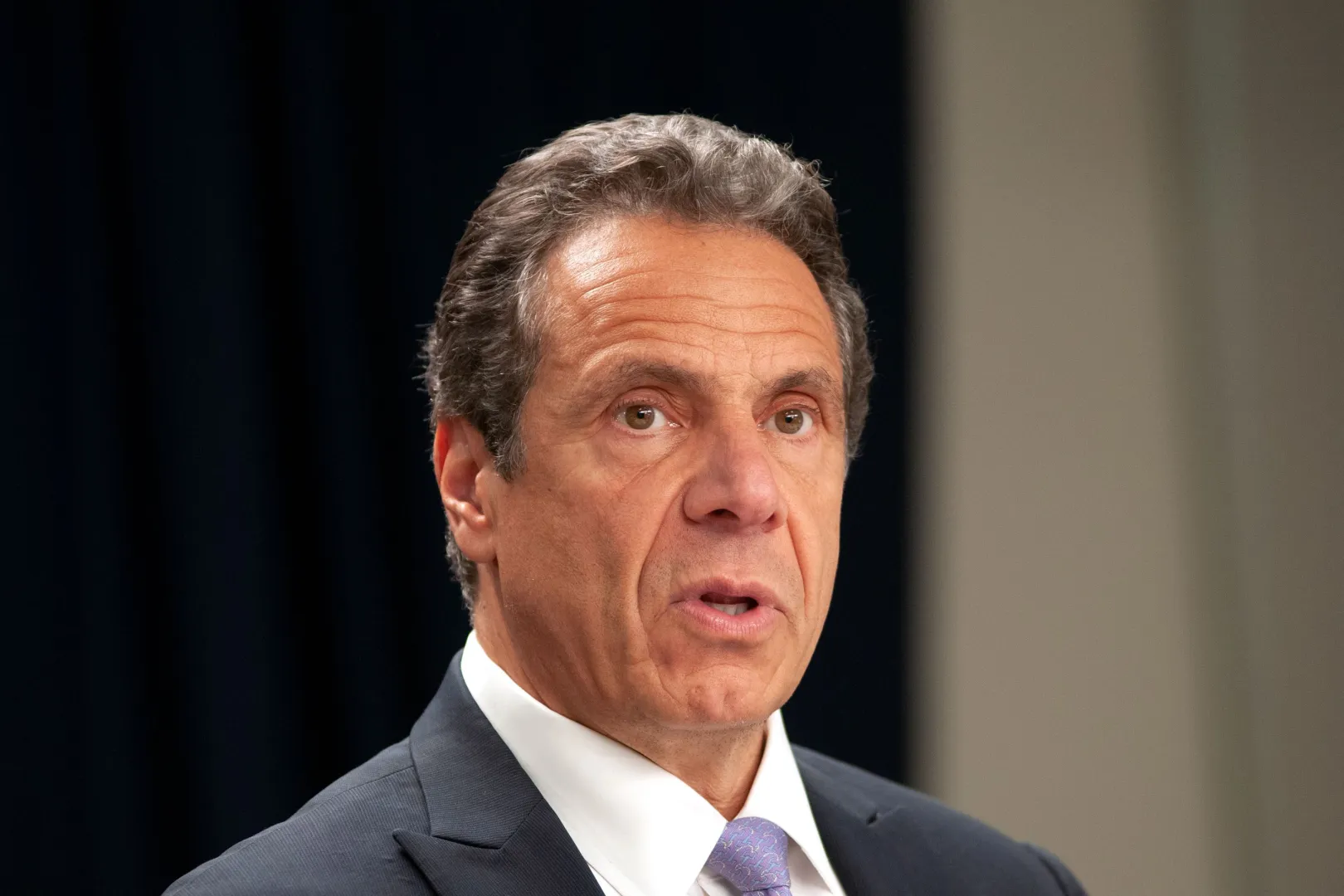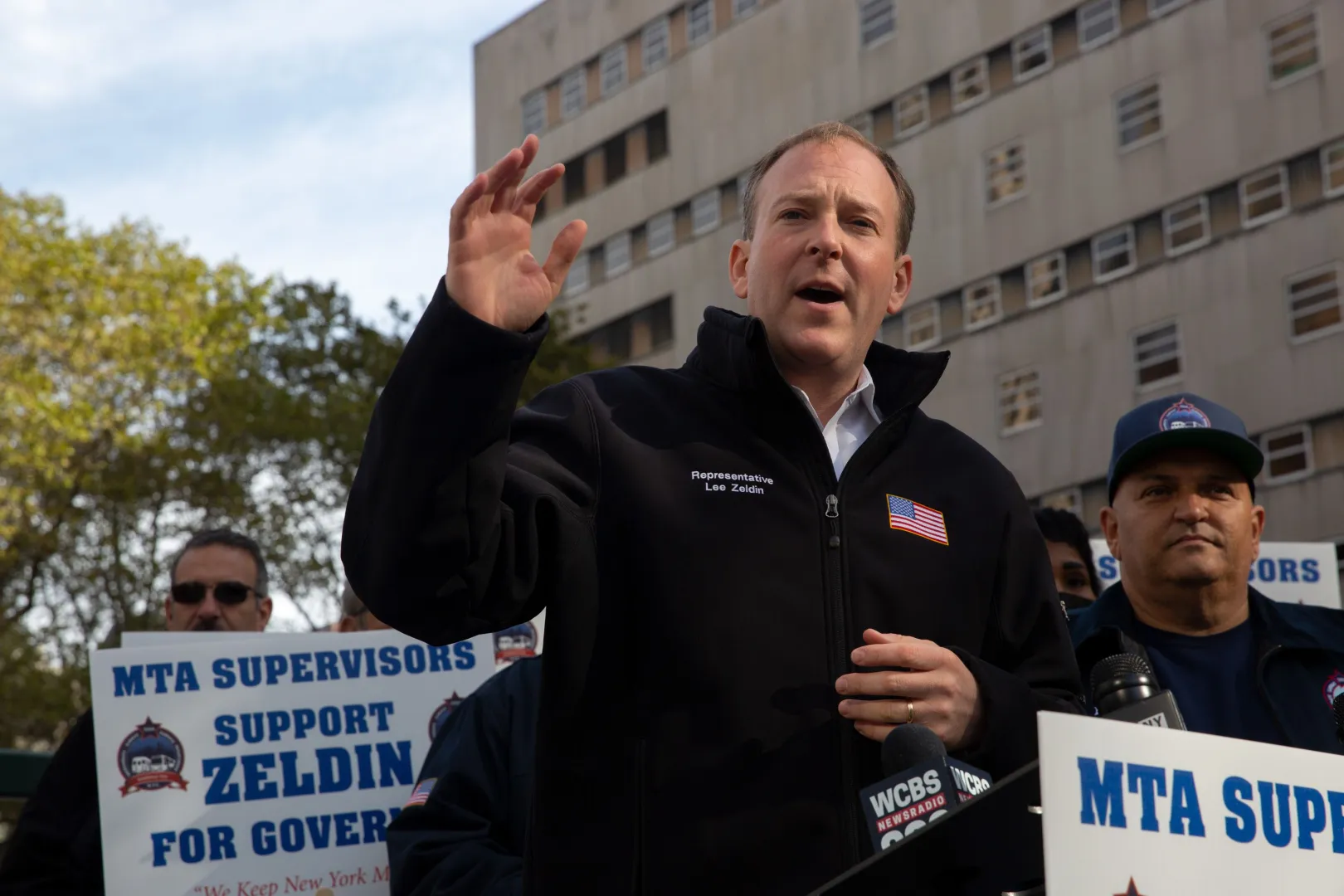Gov. Andrew Cuomo will debate his Democratic primary challenger, actress and activist Cynthia Nixon, on Aug. 29 at Hofstra University. When they walk onto the stage, it will be an historic event.
There has not been a Democratic gubernatorial primary debate in New York State since Barack Obama was still a state senator and Donald Trump was still hosting the Apprentice in 2006.
How did we get here?
In 2014, when Cuomo was seeking a second term as governor, he was challenged in the primary by Fordham Law School Professor Zephyr Teachout. Cuomo simply refused to debate her. While she beat expectations, Cuomo won the primary. Later, he debated three men in the general election. He beat them too.
Four years before that, Cuomo was the state’s attorney general and running to be governor. He had no Democratic primary opponent. That’s because the sitting governor at the time, David Paterson, started campaigning for the top job on Feb. 20, and abruptly ended the campaign on Feb. 26 amid accusations he interfered in a domestic abuse case involving one of his top aides.
That brings us back to 2006. That year there was a gubernatorial primary debate fearuting Eliot Spitzer, the state’s attorney general and rising star in the party; and Tom Suozzi, the Nassau County executive. Suozzi held his own in the debate, but with the party establishment backing Spitzer, Suozzi got crushed when voters went to the polls.
It’s hard to remember a time when Andrew Cuomo wasn’t a factor in New York politics. After all, he was in his early 20s when he ran his father’s campaigns for governor in the early 1980s. But the younger Cuomo only ran for office himself for the first time in 2002.
WHO HAS CUOMO DEBATED?
- 2002 Governor’s Race
- Primary
- H. Carl McCall
- Primary
- 2006 Attorney General’s Race
- Primary
- Charlie King
- Sean Patrick Maloney
- Mark Green
- General Election
- Jeanine Pirro (Republican)
- Primary
- 2010 Governor’s Race
- General Election
- Carl Paladino (Republican Party)
- Jimmy McMillan (Rent is Too Damn High Party)
- Howie Hawkins (Green Party)
- Charles Barron (Freedom Party)
- Kristin Davis (Anti-Prohibition Party)
- Warren Redlich (Libertarian Party)
- General Election
- 2014 Governor’s Race
- General Election
- Rob Astorino (Republican Party)
- Howie Hawkins (Green Party)
- Michael McDermott (Libertarian Party)
- General Election
- 2018 Governor
- Primary
- Cynthia Nixon
- Primary
- 14 — Number of different candidates who have appeared in debates with Andrew Cuomo.
- (Note: Fifteen people are listed above, since Howie Hawkins ran for governor in 2010 and 2014. Richard Brodsky and Denise O’Donnell are not listed above. They both briefly ran for attorney general in 2006, but dropped out before the debates.)
- 5 — Number of Democrats who debated Cuomo
- (2002: H. Carl McCall; 2006: Mark Green, Sean Patrick Maloney, and Charlie King; 2018: Cynthia Nixon)
- 1 — Number of female Democratic candidates who debated Cuomo.
EARLY CUOMO HIGHLIGHTS

Cuomo first ran for office in 2002. He had just finished working as the federal Housing and Urban Development (HUD) Secretary in the Clinton White House. Upon returning to New York, Cuomo challenged the Democratic Party’s preferred candidate, H. Carl McCall, who was the state comptroller. The first debate between McCall and Cuomo was on August 18 and it was moderated by CBS-TV’s excellent reporter, Marcia Kramer.

At one point in that debate, Cuomo said he would use state funds to prevent the MTA from raising fares. “We’re going to have to,” he said. “We have to save the subway fare…” Later, Cuomo suggested funding education initiatives was a matter of priorities, rather than finances. “This is a $90 billion state budget. If you want to make education a priority, you will find the money. I have no doubt about that,” he said.
Another highlight came when Cuomo was asked about television ad his campaign was running. In the ad, Cuomo accuses McCall of attacking Cuomo’s wife and father. Kramer showed the ad and asked Cuomo whether it was, essentially, a “negative ad.”
Cuomo: “I don’t want to have a negative campaign. I don’t want to be negative about my opponent.”
Kramer: “Wasn’t that a negative ad?”
Cuomo: “It was the exact opposite.”
After some back and forth, it’s revealed that one of the offending remarks was made by one of McCall surrogates, Rep. Charlie Rangel. What did Rangel say? That Cuomo’s wife was “not that well politically known.” At the debate, Kramer said that remark seems to be a statement of fact, rather than an attack.
Cuomo: “Well Marcia, that’s your characterization.”
Kramer: “It is.”
Cuomo: “The National Organization for Women criticized Rangel for the comment … so maybe they have a sensitivity that you don’t.”
On August 28, 2002 McCall and Cuomo debated again. It was in Rochester and Cuomo was asked how, if elected, he would deal with a state legislature where Democrats and Republicans each control one chamber. Cuomo pointed to his early successes in Washington dealing with a hostile Republican-led congress, and said he had lots of tricks up his sleeve. Namely: begging, pleading and threatening.
[Thanks to WNYC for the audio.]
Cuomo:
“I was at HUD. I dealt with a very difficult congress. It was the Newt Gingrich Congress. It was hostile to Bill Clinton. I got more significant reform legislation passed than had been passed in 20 years, Michael [Caputo, the moderator]. And this was a Congress that wanted to impeach the president. I got a very big budget increase from a hostile congress that started by wanting to eliminate my department. So I know how to get things done with a legislature. And part of it is asking, part of is begging, part of it is pleading, part of it is threatening. But the part that works is bringing the people back into the process, and saying to the legislature, if you’re going to stay here in gridlock and you’re not going to pass this, you know what I’m going to do? I’m going to go out and tell the people. And I’ll go to your district and I’ll go to the young people and I’ll inform them about what is actually happening in Albany. Part is compromise, but also a demand-results and performance.”
Cuomo dropped out days later, and McCall went on to lose the general election to Republican Governor George Pataki. Cuomo, trying to save face, later said he had so many good ideas he couldn’t communicate them effectively. He also said he wanted to avoid a divisive primary, like the one New York City Democrats had gone through in the mayor’s race the year before. In short: Cuomo learned how hard it is to run against the establishment.
Four years later, in 2006, Cuomo was back. This time, he was running for attorney general. People literally laughed when Cuomo said at one primary debate that he didn’t want to be governor. [Hear it at the 59:20 mark, here]. But the final Democratic primary debate in that attorney general contest was no laughing matter. Months (years?) of tension between Cuomo and his leading opponent, Mark Green, burst forward. It was a remarkable departure for Cuomo, who was trying to convince pundits and reporters that he was serious about keeping his cool and not going negative this time around, after he’d been blasted for sniping at McCall instead of waiting his turn. The debate took place in Manhattan, on September 6, and was hosted by the Association of the Bar of the City of New York.
The two men did not hold back.
Cuomo:
“My opponent has been running for office for many, many, many years. And the one consistent thing is he will go down in the history books as the most negative campaigns that have attacked great people like Chuck Schumer, and Geraldine Ferraro.”
Green:
“Chuck disagrees with you. Call Chuck Schumer.”
Cuomo:
“Chuck Schumer, Geraldine Ferraro — [you] ran a campaign in this city in 2001 for mayor that was one of the most divisive in modern political history.”
Then, Cuomo closed with this:
“There’s a political analog to the old legal theory, remember the theory, if you have the law pound the law, if you have the facts pound the facts, if you have neither, pound the table. The political analog is if you have the record, pound the record. If you have the vision, pound the vision, if you have neither, pound the opponent. That’s Mark Green. Thank you for listening.”
Cuomo and Green had been sparring for what seems like a lifetime. A lot of the coverage that year was focused on them. Cuomo had lots of money and name recognition, as did Green, the former City Public Advocate who had been thisclose to becoming mayor in 2001.
The showdown at that final debate was long in the making.

On April 13, 2006, Cuomo appeared on the first episode of newly created podcast, Daily Politics, hosted by Ben Smith, who was writing for the Daily News at the time.
“The people around Mark Green, and that camp, have this theory that if we poke Andrew Cuomo enough he’s going to explode,” Smith said to Cuomo, in that inaugural episode. “And that the secret to beating you is going to be — the humble Andrew mask is going to come off and some other person will emerge. And I wonder if you feel that is a concern, if they’re right?”
What a question!
“I don’t even understand that,” Cuomo said, very calmly. “I can’t believe that that is a theory the campaign.” He then pivots to his talking abouts about “reform Albany, clean up Albany” and his “social justice agenda.”
Cuomo went on to say, “In terms of trying to make the other person explode, you know, by the way, I don’t know that I’ve ever exploded,so, but everyone comes up with their own theory. Not mine. I don’t want to comment on anyone else’s effort.”
Smith, sticking on the topic for a little longer, asked if Cuomo was using the same tactic as Green. “You’re not trying to make Mark explode?” Smith asked.
“No,” Cuomo said. “I’m not.”
Later, when discussing the support he received from the union representing healthcare workers 1199 SEIU, and other organizations, Cuomo said, “I don’t see the labor movement as a special interest, Ben. I see the labor movement as the organizing of working families in New York.”
You can listen to the audio, here.




